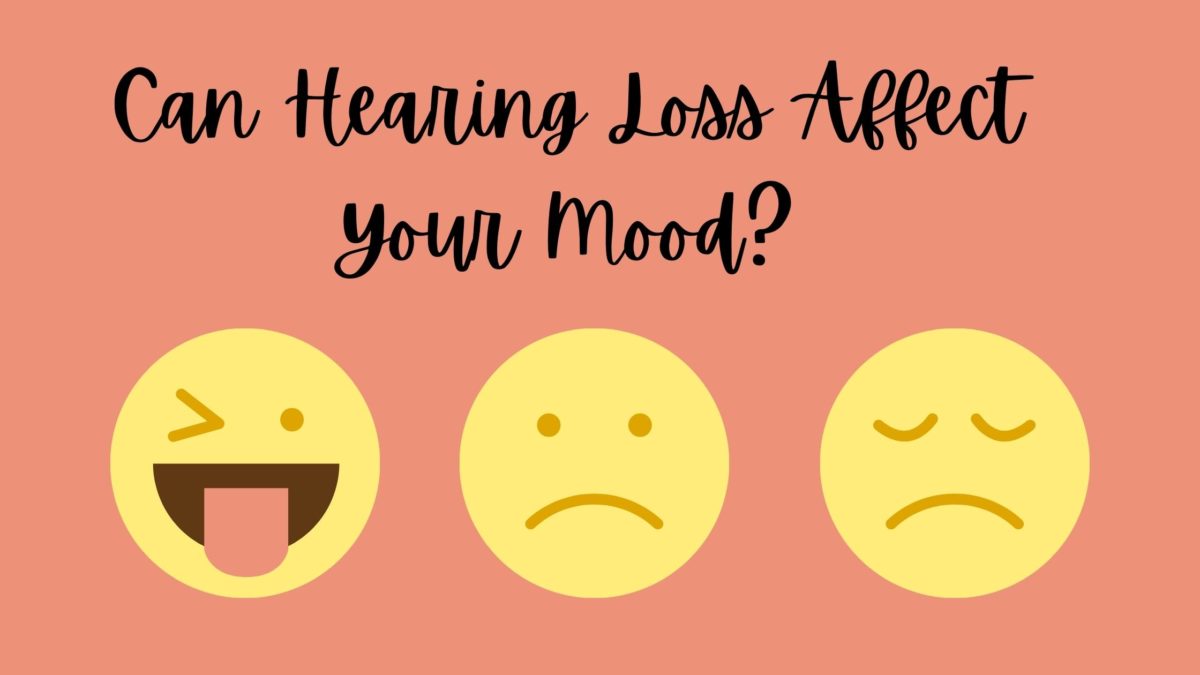
Can Hearing Loss Affect Your Mood?
Sound not only helps us communicate and hear the world around us but it also helps to boost our mood. When we hear sounds we love, such as the soothing sound of a babbling creek, the wind in the trees, or our favorite song, it can help us to feel relaxed and joyful as our dopamine level elevates. Dopamine is a type of neurotransmitter – a chemical messenger that aids in how we experience pleasure. It aids in elevating mood and counteracting depression. In addition, it may actually help you hear better.
Dopamine’s effect on hearing
Hearing begins with our ears, but ultimately sound arrives in our brain. Once sound travels to the inner ear, tiny hair-like cells called stereocilia transform soundwaves into electrical impulses which deliver audio information to the auditory cortex of the brain. There is where sound is identified and speech is interpreted. It is also when dopamine is often released. Dopamine is released when your brain is expecting a reward. This reward could be in the form of anything you enjoy such as delicious food, shopping, or even when hearing your favorite sounds.
Hearing loss and dopamine
The most common type of hearing loss is called sensorineural and occurs when the stereocilia of the inner ear become damaged. This interrupts the delivery of certain sounds to the brain. Depending on the degree of damage this can limit a wide degree of sounds, making it hard to hear the world around you and follow everyday conversations. Sensorineural hearing damage can be caused by diverse sources such as loud noise, old age, impact to the head, ear infection, or exposure to chemicals. Researchers reason that while sound can release dopamine in the brain, the loss of it could have negative impacts on receiving it.
To explore this theory in 2006 French researchers examined the link between the dopamine transporter, a protein that moves dopamine to nerve synapses, and the auditory nerve. The results of the study, published in the Journal of Neuroscience, confirmed that dopamine is vital in maintaining the healthy functioning of the auditory nerve and the way it processes sound signals.
The Importance of treating hearing loss
While sensorineural hearing loss is irreversible it can be treated effectively with hearing aids. These tiny electronic devices fit near or in the ear canal and can be programmed based on a hearing exam to amplify the precise frequencies and tones which a patient struggles with.
Not only do they help you hear and participate in conversation, but they aid in the support of mood. Hearing loss can be isolating and with that often comes chronic depression, anxiety, and sleep issues. Hearing aids give individuals the advantage of hearing the people in their lives and being able to participate more fully. This means better connections with loved ones, more confidence at work and more alertness when out in the world, giving individuals greater independence and empowering them to try new and exciting things.
Music therapy
Music does more than just affect our mood. Music therapy is the clinical use of music to accomplish individualized goals such as reducing stress and improving self-expression. It has been shown to lower blood pressure, improve memory, manage pain, reduce muscle tension, and increase joy. Music is processed directly by the amygdala, which is the part of the brain involved in mood and emotions. With great success, music therapy has proven beneficial in treating patients with Parkinson’s Disease, Alzheimer’s, and other forms of dementia, because of its ability to increase the production of serotonin and dopamine in the brain. Rather than excluding hearing impaired patients, music therapy can enhance the habilitation and overall speech development by helping them better understand speech and focusing on the tone and timbre of speech.
Treating Hearing Loss to Boost Your Mood
If you are struggling with fluctuations in mood and you suspect it may be connected to your hearing, there is no reason to put off the possibility of hearing loss. Often people live with hearing loss for years and are not even aware of it. This is because hearing loss often develops slowly over years. Even so, the negative impacts of hearing loss still can have a lasting effect. Leap and schedule a hearing exam today. Your future self will thank you!
